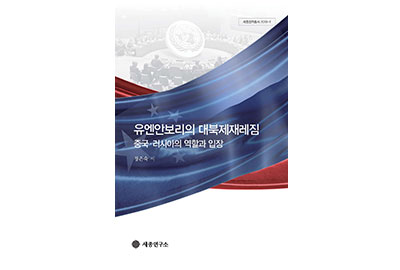The United Nations Security Council has imposed sanctions regime against North Korea in 2006 after its first nuclear test, calling for the suspension of nuclear and missile program and the return to the nonnuclear proliferation treaty and continued to uphold the regime ever since. As the international community witnessed North Korea’s sixth nuclear test and several long-range ballistic missile tests in 2017, it seriously begs the question of the efficacy of the UN sanctions on North Korea and the credibility of the UN Security Council’s policy decisions. As it requires the cooperation of sovereign states, global regime has its weaknesses, but not at all inept. Viewing the development of the UN sanctions regime on North Korea, the author initiated this study from the perception that the roles and stances of China and Russia have been the essential variable in the framework of UNSC sanctions and its implementation and will be so in the future. These two countries are neighbors that have the obligation to comply with the UNSC resolutions more rigorously than any other 193 UN member states as well as the crucial global decision-makers related to UN sanctions. The study analyzes two countries’ role and positions multidimensionally. Until now, despite recognizing the importance of Beijing and Moscow’s role, the domestic scholarship and the policy group have focused on the UN governance and neglected the two countries’ role. The study had expectable outcomes in two aspects. First, the study will contribute to South Korea’s orientation in national security and diplomacy at the global stage as well as in Northeast Asia and relations with the four neighboring countries by evaluating the two countries’ contribution and limitation in the UN sanctions regime against North Korea for the last 11 years. Second, it is expected to serve as a reference for the scholars and students of international relations to explicitly outline the transitional nature of global governance. The study deals with: the current status of North Korean nuclear and missile program from the perspective of international regime; details of tightening UNSC sanctions measures phase-by-phase; analysis of China and Russia’s role as a permanent member of the UNSC and UN member state; dubious cases of North Korea’s non-compliance related to China and Russia; explanation for China and Russia’s passivity in sanctions based on international relations theories, such as realist, constructivism, and institutionalism; and evaluation and policy implications on UN sanctions regime against North Korea The research method applied for this study is documentary research including official documents such as UN archives, press articles, and secondary sources.
Volume : 2018-1
Publisher: the Sejong Institute
Publication Date : January 15, 2018
Paperback, 149 Pages
